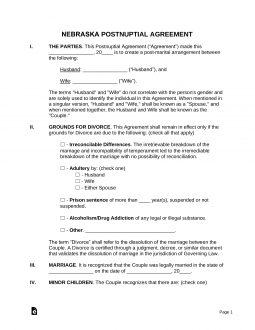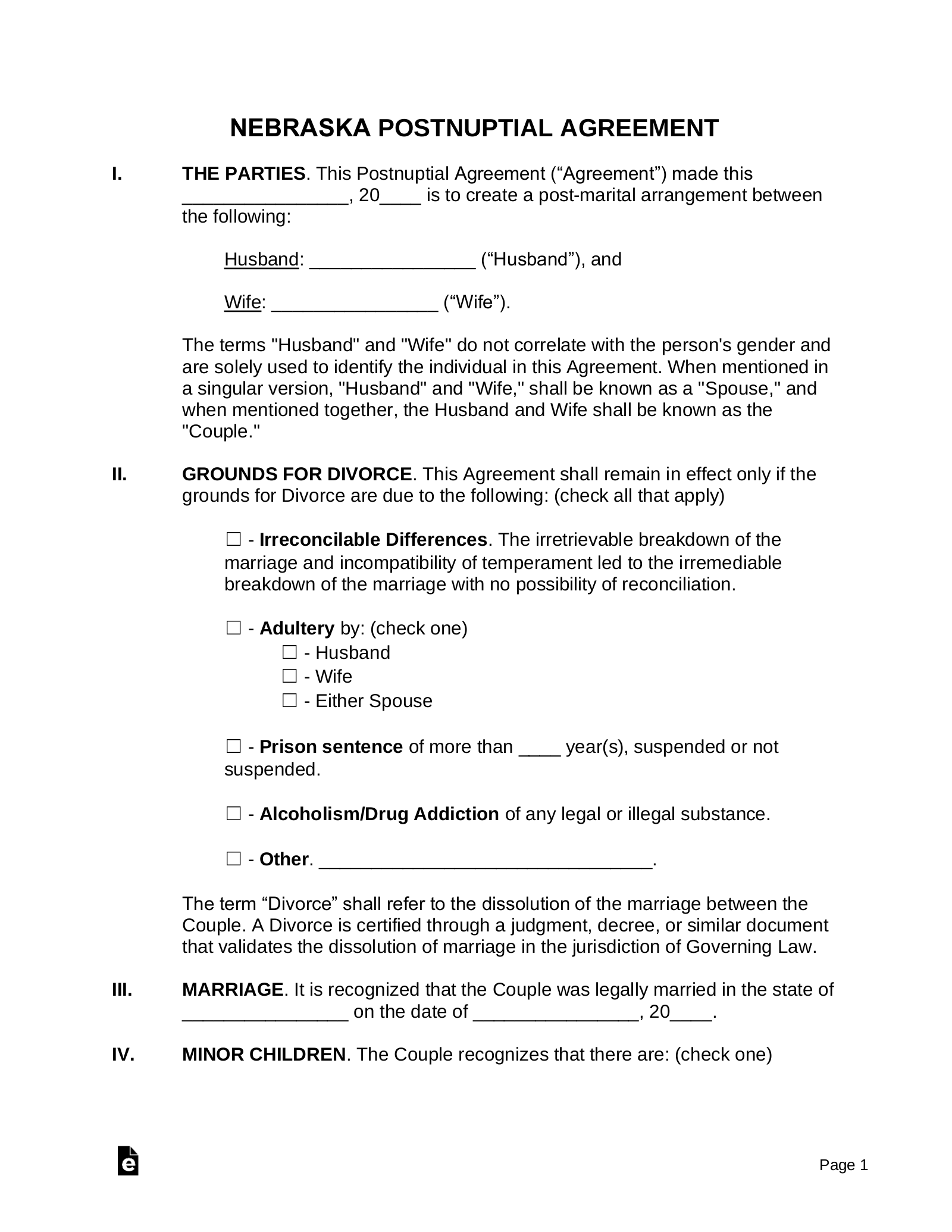Updated March 27, 2024
A Nebraska postnuptial agreement is a contract between spouses used to divide their assets during a divorce proceeding. As their name indicates, postnuptial agreements are signed after a marriage has become official; this distinguishes them from prenuptial agreements, or prenups, which couples sign before getting married.
In many states, married couples can use prenuptial and postnuptial agreements preventively to determine how marital property rights will be assigned if the marriage ends in divorce (or death). But in Nebraska and some other states, postnuptial agreements can only be created by couples who intend to divorce. They may agree on a plan for distributing assets that a judge can implement in a divorce decree.
Laws
Separation Agreement: Married couples may enter into a written property settlement agreement regarding
- Support for either spouse
- The disposition of any property owned by either of them, and
- the support and custody of minor children.[3]
Intent to divorce: Nebraska statutes do not authorize postnuptial agreements to allocate the parties’ property rights upon separation or divorce unless the couple plans to separate or get divorced.[1]
Validity: Courts are generally bound by separation agreements, except regarding terms providing for the support and custody of minor children, which courts can evaluate independently. Courts can also decline to enforce an agreement if there is relevant evidence that the agreement is unconscionable.[4]
Unconscionability: The facts in each case determine whether an agreement is unconscionable.[5]


